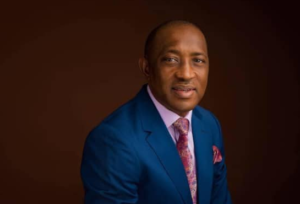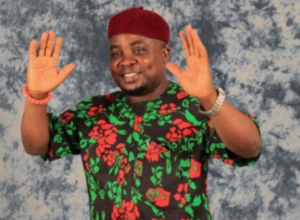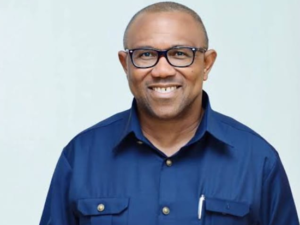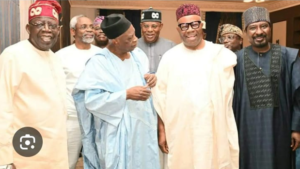Umuaka Community Hospital: Can We Revive It? (1). By Dr Uche Oguike.
5 min read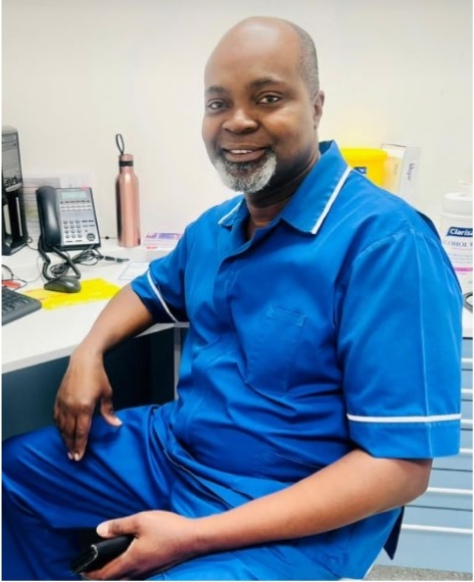
Editor’s note: Umuaka Community Hospital: Can We Revive It is a key note address delivered by Dr Uche Oguike at the AVA/UWDA Convention held in London, United Kingdom on 14August, 2010. The document had been slightly edited by Umuaka Times.

INTRODUCTION
According to the World Health Organization (WHO), “health is a state of complete physical, mental, and social well-being and not merely the absence of disease or infirmity”. Overall health is achieved through a combination of physical, mental, and social well-being of an individual. These three factors together are commonly referred to as the health triangle.
The Umuaka Community Hospital was commissioned in 1977. The conception, planning contributions and execution of the project was based on the ten original villages in Umuaka, long before the creation of autonomous communities. The dream of the founders was simply to build a heath institution that will take care of the health of our people primarily and the surrounding or adjourning communities. This dream was underpinned by the understanding of our people on the central role good health plays in the overall socio-economic development of any community or people. A popular saying is that “a healthy community is a wealthy community”.
BACKGROUND
Prior to the establishment of this hospital, Akah people used to travel to General hospitals in Amaigbo, Emekuku, Owerri, Orlu and other private hospitals in these areas. There were also some private clinics and maternities with visiting doctors that were patronized by our people then. The only public funded health institution in the community was the Dispensary. Accessing quality health care was very costly to the people that our people vowed to establish a hospital in the town.
The presence of a functional hospital was also a status symbol among the communities in those days. The establishment of this hospital brought a sense of accomplishment among our people then.
While I am not writing with any empirical quantitative data, the socio-economic benefit of the hospital establishment, to the community was enormous. The direct and indirect cost of receiving hospital based care reduced dramatically.
Moderately challenging medical and surgical cases, including more difficult cases of child birth were treated or performed locally. The operative theatre was modern and functional. The environment was welcoming. The buildings were fit for purpose and patients’ attendance was overwhelming. The management of the hospital until the early 1990s was satisfactory.
There was a management board that had clear mandate and responsibilities, and their tenure was fairly stable. The transition from one management board or group to another was orderly. The staff were paid their salaries and wages. There was little or no acrimony. Even when there were problems, it was contained within the management group and the leadership of the community. I will consider this period as the good old days of the hospital or the golden era.
PROBLEMS
Following this period of relative stability, though without any meaningful growth, was a period of declining fortune of the hospital as a centre for healing. This was exacerbated by the creation of autonomous communities. There was no longer a sound supervisory body and the central governing body of the community then (Umuaka Development Union, UDU) to which the hospital management was normally accountable to was weakened. This lack of a central authority that commanded the respect of the entire Akah people is the single most important factor that led to the near sorry state of the hospital today.
Another important factor that has held the hospital down is the obvious institutional weaknesses of most community managed concerns. The lack of any strategic plan and poor quality of management has been part of these weaknesses. Students of management know that when you have a vision, a good strategic plan, sound management and the needed resources, you will achieve your goals, even if you make tactical errors along the line. The Umuaka Community Hospital lacked and still lacks these resources.
There has never been any form of accountability on the management and nobody has reasonably and genuinely attempted to demand for accountability. Our people have always lacked the political will to effect meaningful changes in the organization and administration of the hospital.
In addition to the above, are the socio-economic and the political environment in which this hospital operates. There is widespread poverty in the community as it is in Nigeria as a whole. The hospital is viewed by some people at home as a cash cow. The consequence is that some people in positions of authority and perhaps responsibility have taken advantage of the aforementioned weaknesses to corruptly enrich themselves from the meager resources generated from the hospital without any commensurate investment in its sustainability.
The height of the undue political interference and power struggle to control the affairs and the resources of the hospital was when Njaba South Development Centre Coordinator, a political appointee, forcefully sacked the entire management of the hospital without recourse to due process and perhaps without a valid mandate from the community.
CURRENT STATE
The above problems have left the hospital as a mere consulting centre and a shadow of itself. It has not in any way fulfilled the aspirations of the founding fathers (and mothers) who in the midst of abject poverty after the Nigeria-Biafra civil war levied themselves, contributed their energy and other resources to see to the establishment of the community hospital.
The structures are dilapidated and no longer fit for purpose, the senior clinical staff turnover is high, and the hospital cannot attract and retain quality and experience doctors again.
The staff morale is low, there is little or no staff training and majority of the nurses are not properly trained or registered with the council (Nurse Eliza). I am not aware of any central clinical and administrative leadership. Some of the members of the board do not understand their role and believe they have been invited to “come and chop”.
Those who can afford it do not take their relatives to the community hospital again. Even when they have a relative admitted there, they will be reluctant to visit the person in the hospital not to contract any infection. There are catalogue of problems with the hospital that time and space will not permit me to enumerate. The summary is that things are not the way they should be. The hospital is a failing institution in almost all ramifications.
Mr. Dona Nwokedi once wrote “the revenue that is coming from the hospital is being shared into three. The doctors, the staffs and the so called chairman or management even sometimes the staffs are not being paid, but surely the management must pocket the rest of the money for their own use, leaving the hospital as wretched as ever. People living abroad are being levied or tasked to donate money to the Hospital, while nuisances are at home ripping the labour of the Diasporas that are donating money to the Hospital”.
Ironically the only aspect of the hospital that appears to be doing well is the mortuary services or the morgue. Is Umuaka Community Hospital now a dying centre? No, it shall never be.
To be continued next week.

